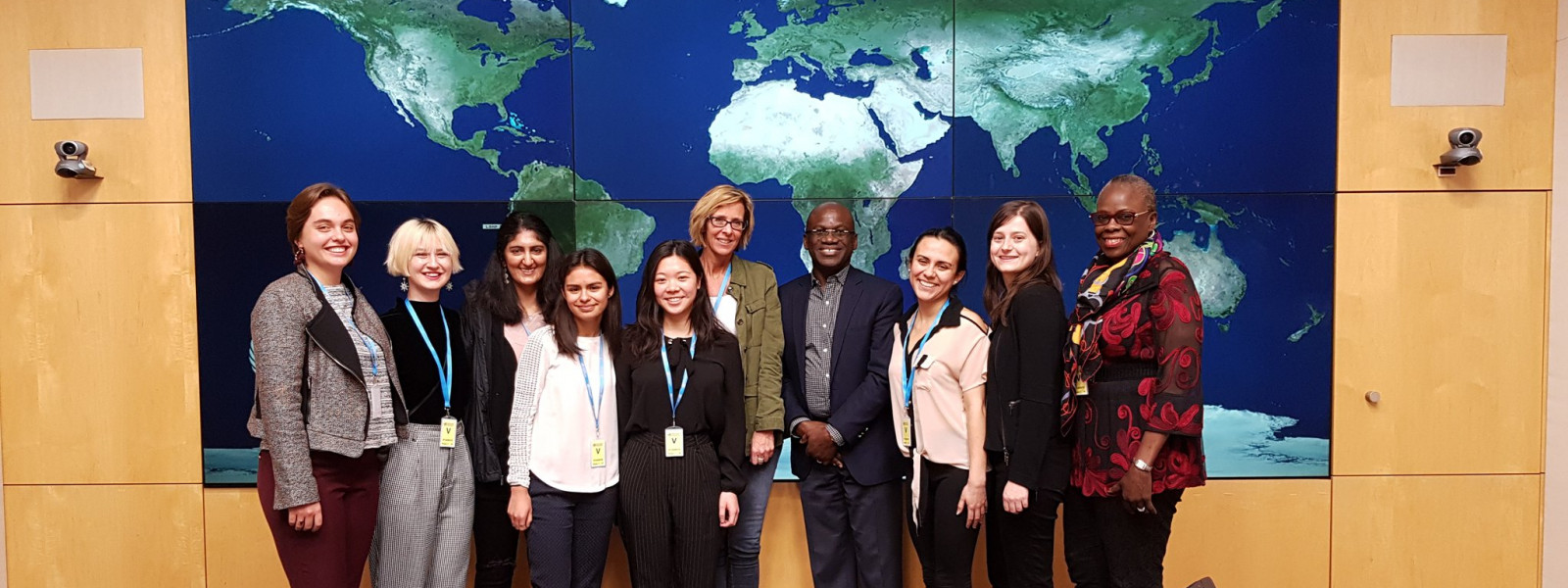The Global Health in Paris program will feature a sequence of three courses focused on epidemiology, microbiology, and the broader social, political, and economic forces that shape global health issues.
- BIOS 27815. Infectious Diseases
(Kathleen Beavis and Cara Brook) - SSAD 25006. Global Health Initiatives: An Interdisciplinary Approach
(Leyla Ismayilova) - BIOS 29814. Biological and Social Determinants of Health
(Sola Olopade and Funmi Olopade) - accommodation
- instruction
- student support
- program excursions
- emergency travel insurance (ISOS)
- round-trip airfare to and from the program site
- passport/visa fees
- transportation on site
- meals
- course materials
- personal entertainment and travel
- communications (including cell phone usage)
- health insurance and upfront payments for care
- other miscellaneous expenses
For all courses, classroom work will be complemented by laboratory exercises and field trips to Parisian locales that will enhance students’ understanding of the course topics. All participants will take a “practical” French language course (beginning, intermediate or advanced) running at a normal pace through the quarter.
Faculty who teach on this program rotate from year to year. The faculty roster is designated by the program faculty director.
The following courses were taught in the Winter 2025 program:
All participants also take a French language course.
Headquarters for the College’s study abroad programs in Paris is the University of Chicago John W. Boyer Center in Paris, the University’s teaching and research hub in Europe. Since 2003, the Center has been home to a growing array of the College’s hallmark Study Abroad programs and has supported our community of students, faculty, alumni, and partners from around the world. Designed by Studio Gang, the new Center features state-of-the-art classrooms, offices, event and reception spaces, and gathering areas for students, among other features.
Students in the Global Health in Paris program are housed in a residence hall within the Cité Internationale Universitaire (Cité). The Cité, a park-like residential complex in the fourteenth arrondissement, is the international student campus in Paris, though French students also live there. Students reside in single rooms with a private bath and have access to Cité facilities, including a library, theater, laundry, and athletic facilities. Students will have access to common kitchens in the residence halls and can purchase inexpensive meals at the Cité’s restaurant universitaire.
It is important to recognize the cultural context of student housing in France and understand that the amenities of dormitory facilities may vary. Although some of these differences may take some getting used to, remember that cultural differences extend to all aspects of your experience abroad. Having realistic expectations for your term in Paris will help you approach the study abroad experience with a positive attitude.
Participants in the Global Health program remain registered as full-time students in the College. They take and receive credit for four courses. The Epidemiology and Microbiology courses can be used to satisfy upper-level elective requirements within the Biological Sciences major, while the Topics in Global Health course will count as a general elective in the College. These courses may also be appealing to students majoring in other disciplines, such as Public Policy Studies or History, Philosophy, and Social Studies of Science and Medicine, and to students who are preparing for health professions, although a strong background in biology is required. The language course will count as an elective. Course titles, units of credit, and grades are placed on the College transcript.
Study abroad students pay regular College tuition, a program fee, and a nonrefundable study abroad administrative fee. The tuition and program fee are paid in conformity with the home campus payment schedule, and a deposit toward the nonrefundable study abroad administrative fee is submitted when accepting a place in a program. Precise figures for the Paris program during the 2025-2026 year are listed below:
Winter tuition: as set by the Bursar’s Office
Study abroad administrative fee: $675
Paris program fee: $5,960
Program fee includes:
Out-of-pocket expenses include:
Previous program participants report spending in the range of $200 to $250 per week on meals and incidentals while on the program, though frugal students may spend less, and others could spend much more. Bear in mind that the cost of living in Paris is relatively high and that, while it is possible to live frugally, it is also possible to run short of money if you are unwary. It is therefore essential that you budget your funds prudently, apportioning your resources so that they last for the duration of the program. If you are planning to travel before or after the program or on weekends, you should budget accordingly.
Study abroad students retain their financial aid eligibility. For more information about financial aid resources, please see our Tuition, Fees, and Funding section.
To be eligible for the Global Health in Paris program, students should have completed the first three quarters of a Biological Sciences Fundamentals Sequence or obtain consent from the Master of BSCD. Students who have taken BIOS 20170, 20171, and 20172 and earned an average grade of B- or better in these three courses are also considered eligible for the program.
The Global Health program is open to University of Chicago undergraduate students only. Applications from outside the University are not accepted.
The program is designed for undergraduates in good academic and disciplinary standing in the College. While the program stipulates no minimum grade-point average, an applicant’s transcript should demonstrate that they are a serious student who will make the most of this opportunity. Because the sequence is taught in English, there is no language prerequisite, although students are encouraged to take French on campus before the program begins.
Each application is examined on the basis of the student’s scholastic record and personal statement. If you are interested in applying for this program please fill out the online application.
To discuss the Global Health in Paris program and the possibility of participating, please contact Damaris Crocker De Ruiter.
